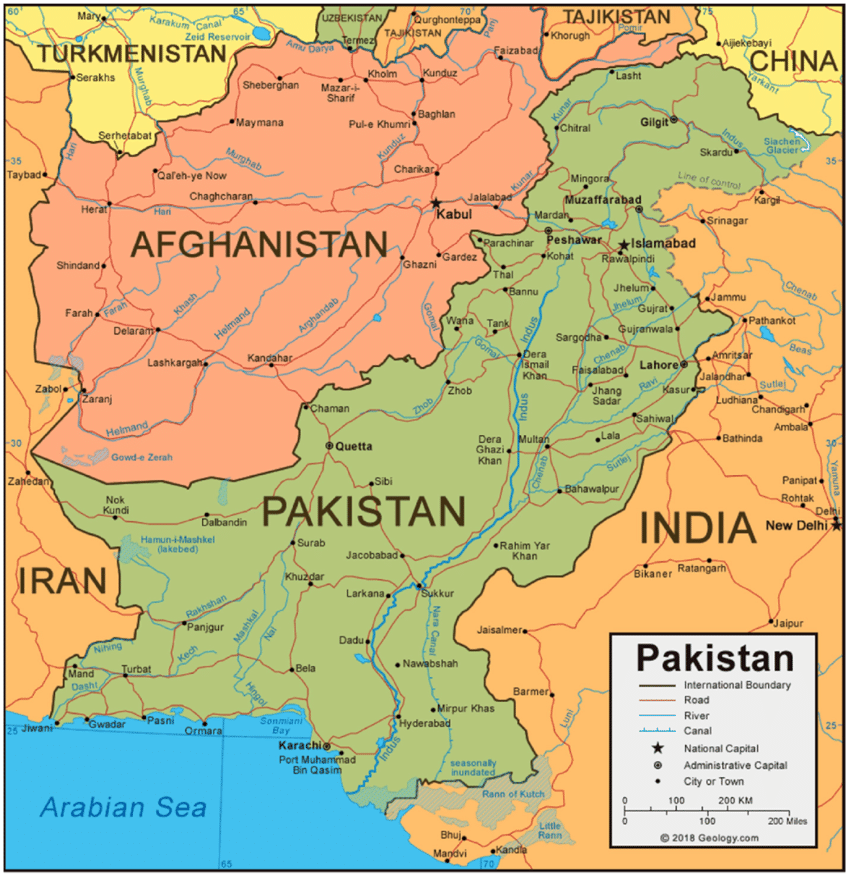India-Pakistan Recent Escalations: Rising Tensions in the Disputed Kashmir Region
Overview
The relationship between India and Pakistan has sharply deteriorated following a deadly attack in Kashmir that killed over two dozen tourists. This incident has reignited longstanding animosities between the nuclear-armed neighbours, with India accusing Pakistan of supporting terrorist organisations,s claim Pakistan denies. The fallout has been swift, with both nations enacting punitive measures, further deepening a crisis rooted in decades of territorial disputes, wars, and ideological differences. https://mrpo.pk/rss-bjp-and-the-global-web-of-controversy/

The Kashmir Tourist Massacre: Flashpoint of the Current Crisis
On April 22, 2025, a devastating attack in Indian-administered Kashmir left 26 tourists dead, most of them Indian nationals. The Resistance Front, a relatively unknown militant group, claimed responsibility for the massacre in Pahalgam, a popular tourist destination. The attack occurred during peak tourist season, causing chaos and tragedy in the scenic valley.
Indian security forces responded quickly but could not prevent the bloodshed. Survivors described masked men firing indiscriminately at tour buses before fleeing into the forests. India immediately blamed Pakistan, citing similarities to previous attacks by Pakistan-backed groups. Prime Minister Narendra Modi vowed to track down the perpetrators, delivering a strong message to both domestic and international audiences.
Diplomatic Breakdown: Immediate Consequences of Escalating Tension
India-Pakistan Recent Escalations. Following the attack, India downgraded diplomatic relations with Pakistan, recalling high commissioners and reducing embassy staff. The Wagah-Attari border crossing was closed, halting trade and stranding travellers. For the first time in decades, India suspended its participation in the Indus Waters Treaty, a significant move given the treaty’s resilience through previous wars.
Pakistan responded with a complete halt to bilateral trade and cancelled existing visas, affecting thousands of families and students. Humanitarian ties have suffered, with families separated and students stranded. International organisations, including the UN, have called for restraint, but nationalist sentiment complicates de-escalation efforts.
Historical Context: The Legacy of Indo-Pakistani Wars
The current crisis is rooted in a history of wars and territorial disputes, particularly over Kashmir. Major conflicts in 1965 and 1971, as well as the 1962 Sino-Indian War, have shaped military strategies and national identities in both countries. The wars have left deep psychological scars and continue to influence regional geopolitics.
RSS Ideology: Understanding the Hindu Nationalist Movement
The Rashtriya Swayamsevak Sangh (RSS), founded in 1925, has profoundly influenced Indian politics with its vision of a Hindu nation. The organisation promotes discipline, service, and territorial unity but has faced criticism for its exclusionary stance toward minorities. The RSS operates through a vast network of affiliates, impacting education, labour, and social welfare.
Modi Government and RSS: Mainstreaming Hindu Nationalism
The Modi government recently lifted a decades-old ban on government employees participating in RSS activities, further mainstreaming the organisation. RSS influence has expanded in government structures, education, and cultural institutions. Critics argue this shift politicises India’s bureaucracy and institutions, while supporters see it as recognition of the RSS’s role in nation-building.
Allegations Without Evidence: The Pattern of Blame Game
India-Pakistan Recent Escalations, Accusations between India and Pakistan have intensified, with Pakistan alleging Indian involvement in targeted killings, claim India strongly denies. This pattern of mutual blame, often without substantial evidence, exacerbates mistrust and complicates diplomatic resolution. International incidents, such as the killing of Khalistani separatists, have further strained relations.
India, under the BJP government, has consistently resisted independent investigations by international observers, including those under the auspices of the United Nations, for several interrelated reasons rooted in political strategy, institutional control, and concerns over national image.
- Protection of Sovereignty and National Image
The Indian government, particularly under the BJP, often frames calls for international investigations as infringements on national sovereignty. Allowing UN or other external observers to investigate incidents-especially in sensitive regions like Kashmir-could be perceived domestically as an admission of internal weakness or wrongdoing. This stance is reinforced by the government’s desire to maintain a strong, self-reliant image both to its domestic audience and on the international stage7.
- Erosion of Independent Institutions and Suppression of Criticism
Reports from Human Rights Watch and Amnesty International highlight that the BJP government has systematically undermined the independence of domestic institutions meant to protect human rights and ensure accountability. This includes the National Human Rights Commission and other constitutional bodies, which have become less effective and less independent under BJP rule35. The government has also been criticised for targeting activists, journalists, and opposition leaders who call for transparency or international oversight, using legal and financial tools to suppress dissent47. This environment makes the government less inclined to welcome external scrutiny.
- Use of Nationalist and Majoritarian Narratives
The BJP’s political strategy relies heavily on majoritarian Hindu nationalist narratives, often portraying international criticism or investigations as foreign interference aligned against India’s interests. This rhetoric is used to rally domestic support and delegitimise both internal critics and external observers57. The government has responded to allegations of abuses-such as those in Kashmir or against minorities-by denying wrongdoing and accusing critics of bias or of supporting separatism and terrorism.
- Precedent of Non-Cooperation and International Criticism
India-Pakistan Recent Escalations are not a solitary incident, there is a documented pattern of the Indian government refusing to cooperate with international bodies. For example, when UN experts raised concerns about arbitrary detentions or human rights violations, the government either ignored or dismissed these communications3. International organisations, such as Amnesty International and Human Rights Watch, have themselves faced operational restrictions, including the freezing of accounts and forced shutdowns, after criticizing the government or calling for independent investigations7.
- Fear of International Repercussions and Loss of Narrative Control
Independent investigations by reputable international bodies could reveal evidence contradicting the government’s official narratives, especially regarding communal violence, treatment of minorities, and incidents in Kashmir. Such findings could damage India’s international reputation and provide ammunition to critics, including rival states like Pakistan. The BJP government prefers to control the narrative by conducting internal probes, which are often criticised for a lack of transparency and impartiality35.
In summary, the BJP government’s reluctance to allow independent international investigations stems from a combination of protecting national sovereignty, controlling the domestic and international narrative, weakening of independent institutions, and a broader strategy of suppressing dissent and external scrutiny3457.
Terror Incidents During the BJP Regime: Strategy to Garner International Support Against Pakistan
Since the rise of the Bharatiya Janata Party (BJP) government in India, a notable pattern has emerged where terror incidents, especially in Kashmir and other sensitive regions, coincide with high-profile visits by international dignitaries. These attacks have not only intensified India-Pakistan tensions but also appear to be strategically leveraged by the BJP government to strengthen its political narrative and garner international support to designate Pakistan as a terrorist state.
Terror Incidents Coinciding with High-Profile Foreign Visits
Documented Cases of Strategic Timing
Several terror attacks have occurred during or immediately before visits by prominent foreign leaders, suggesting a deliberate timing to maximise political and diplomatic impact:
-
April 2025 Pahalgam Attack: Militants targeted tourists in Kashmir, killing over 20 people just as U.S. Vice President J.D. Vance visited India. The attack disrupted the peak tourist season and coincided with heightened international attention on the region.
-
March 2000 Chittisinghpora Massacre: Hours before U.S. President Bill Clinton’s historic visit, militants disguised as Indian soldiers killed 36 Sikh villagers in Jammu and Kashmir. This attack aimed to embarrass the Indian government and spotlight the Kashmir conflict during a major diplomatic event.
These incidents provide militants with global media coverage and political leverage, while simultaneously allowing the Indian government to highlight cross-border terrorism on the international stage.
BJP Government’s Political Strategy: Leveraging Terror for Diplomatic Gains
Framing Pakistan as a State Sponsor of Terrorism
The BJP government has consistently blamed Pakistan for supporting terrorism in India, using terror incidents to:
-
Justify military responses such as the 2016 Uri surgical strikes and the 2019 Balakot air strikes.
-
Push for Pakistan’s international isolation by seeking a global designation of Pakistan as a terrorist state.
-
Garner sympathy and support from key global powers, particularly the United States.
Key Milestones
-
UN Designation of Masood Azhar: The UN’s listing of JEM leader Masood Azhar as a global terrorist was a diplomatic win for India and reinforced the BJP’s hardline stance.
-
Diplomatic Measures Post-Pahalgam Attack: India’s suspension of the Indus Waters Treaty and downgrading of diplomatic ties with Pakistan after the 2025 attack exemplify how terror incidents are used to escalate pressure.
Resistance to Independent International Investigations
The BJP government’s reluctance to permit independent investigations by the UN or other international observers stems from:
-
Concerns over national sovereignty and control of the narrative.
-
Fear of exposing security lapses or internal complicity.
-
Political benefits from managing incidents internally to sustain nationalist support.
This stance often fuels accusations of opacity and undermines international confidence in India’s handling of such incidents.
Media and Public Perception
Media coverage in India, including India-Pakistan Recent Escalations, tends to frame terror attacks as evidence of Pakistan-backed terrorism, reinforcing nationalist sentiments. Conversely, Pakistani media often portrays India as the aggressor, deepening mutual mistrust. Social media amplifies polarised narratives, complicating objective understanding.
The pattern of terror incidents coinciding with high-profile foreign visits is well-documented, though definitive proof of orchestrated timing remains elusive. What is clear is that the BJP government strategically leverages these incidents to:
-
Bolster domestic political support through nationalist rhetoric.
-
Strengthen diplomatic efforts to isolate Pakistan internationally.
-
Justify stringent security measures and military actions.
This approach aligns with the BJP’s broader agenda of portraying Pakistan as a state sponsor of terrorism and consolidating India’s position on the global stage.
References
-
Kashmir attacks coinciding with U.S. Vice President’s visit and peak tourist season, The Conversation, April 2025
-
Major terror attack in Pahalgam coinciding with high-profile diplomatic visits, India Today, April 2025
-
NDTV, “Kashmir Attack During JD Vance’s Visit Mirrors Bill Clinton’s 2000 Trip”
-
Indian Express, “2000, ’02, J&K terror’s old ghost: Pahalgam attack during high-profile US visit”
-
Human Rights Watch, “India: Crackdown on Rights Groups” (2023)
-
Stimson Centre, “Pulwama/Balakot and The Evolving Role of Third Parties in India-Pakistan Crises”
-
Lowy Institute, “Masood Azhar – a global terrorist – and the implications for Pakistan”
-
Carnegie Endowment, “A Smoldering Volcano: Pakistan and Terrorism after Balakot”
-
BBC News, “Why India rejects international mediation in Kashmir” (2019)
-
Council on Foreign Relations, “Kashmir, Terrorism, and US Policy” (2024)
Water Disputes: The Strategic Resource Fueling Tensions
India’s suspension of the Indus Waters Treaty marks a dangerous escalation in the conflict. The treaty, which governs water sharing between the countries, is vital for Pakistan’s agriculture. Any disruption could devastate Pakistan’s food security. The dispute over water rights adds another layer of complexity to the crisis, especially as climate change threatens regional water security.
Media Narratives: How Reporting Shapes Public Perception
Media coverage in both countries fuels nationalistic sentiment and shapes public perception. Indian media frames the Kashmir attack as Pakistan-sponsored terrorism, while Pakistani media portrays India as an aggressor. Social media amplifies polarised narratives, creating information bubbles and hindering balanced understanding. International media face access restrictions, limiting their ability to provide comprehensive coverage.
Citations:
- https://ppl-ai-file-upload.s3.amazonaws.com/web/direct-files/attachments/35959645/c37b837c-96ca-4f31-a5d1-d0563aa6d60d/paste.txt
- https://ppl-ai-file-upload.s3.amazonaws.com/web/direct-files/attachments/35959645/9ca47eb9-9ca2-4024-a6a6-f56f017487d3/paste-2.txt
- https://trainingmag.com/9-seo-strategies-for-news/
- https://storychief.io/blog/how-to-improve-seo
- https://bkacontent.com/improve-google-news-ranking/
- https://ralfvanveen.com/en/seo/seo-for-news-websites/
- https://www.hocalwire.com/blog/the-ultimate-guide-to-google-seo-for-news-articles-1195296
- https://tagdiv.com/implementing-effective-seo-practices-for-news-websites/
- https://yoast.com/optimize-news-site/
- https://backlinko.com/international-seo
- https://www.searchenginepeople.com/blog/seo-for-google-news-ranking-factors-and-recommendations.html
- https://www.seoforjournalism.com/p/content-news-seo-concepts
- https://newsdashboard.com/en/the-essential-guide-to-keywords-in-headlines-for-google-news-seo/
- https://www.newzdash.com/guide/ultimate-news-seo-checklist-how-optimize-your-news-articles-publishing
- https://www.linkedin.com/pulse/challenges-international-seo-how-overcome-them-sania-wilkinson-oglff
- https://www.searchlogistics.com/learn/seo/how-to-get-on-google-news/
- https://stayrelevant.globant.com/en/creativity/content-and-social/seo-strategy-for-news-and-media/
- https://veracontent.com/mix/international-seo-keyword-research/
- https://www.webceo.com/blog/how-to-do-seo-for-news-websites/
- https://www.stanventures.com/industries/seo-for-journalists/
- https://www.lumar.io/blog/best-practice/seo-for-news-publisher-websites/
- https://backlinko.com/seo-strategy


